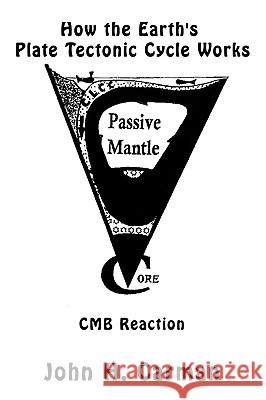How the Earth's Plate Tectonic Cycle Works: CMB Reaction » książka
How the Earth's Plate Tectonic Cycle Works: CMB Reaction
ISBN-13: 9781438989464 / Angielski / Miękka / 2010 / 88 str.
The youth of the ocean floors (0- .3Ma) verses the age of plate tectonics (2-3 Ma) suggests strongly that plate tectonics is cyclic. Densified silicate liquid(Ls) at about 290km depth suggests that it could be the ingredient that lightens the outer core as well as an active ingredient in its activities along with lower mantle phases high density magnesium provoskite (MgPv), calcium perovskite (CaPv), magnesiumwustite (Mw), iron(Ir) and iron liquid(Lm) plus isobarically and isothermally invariant liquid phases. Unstable convective contacts among these phases at all levels produce heat as they tend toward stable equilibrium. This heat expands against the earth's mantle and even causes the inner core to melt with 5ccg. Eventually, the core-mantle boundary fails along lines and / or points to allow for the exit of densified silicate liquid. This liquid reacts with the lower mantle to produce unique liquids FOZO for oceanic island basalts and C-Component for the ridge and rise basalts ofthe Atlantic, Indian and Pacific oceans. It is thought that these ejected liquids react to form hot solid plumes of low viscosity that ascend to 290 km where they melt on decompression to basalt that ascends further to create oceanic crust. Sea-floor spreading followed by subduction to the earth's core where the cycle ends to begin... again and again. A hypothetical ternary system is used to illustrate the cycle from beginning to end. Experimental evidence indicates that the core-mantle boundary may be as simple as a quaternary reaction: MgPv + CaPv +Mw = Ls + Lm, where Ls probably contains some Fe203.











